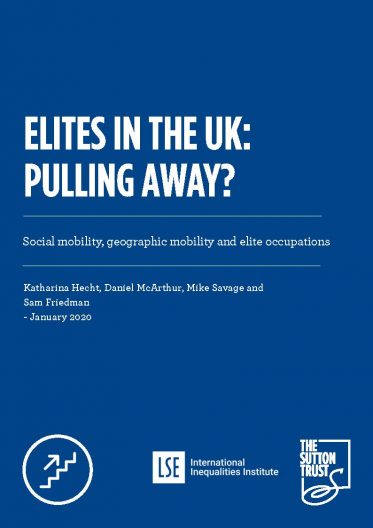Report Overview
It’s clear that there is a growing anxiety about elites in the UK. The politics of Brexit has often been seen as a popular vote against the London ‘elite’, picking up on widespread popular concern in the aftermath of the 2008 financial crash. There is also a growing sensitivity to London’s role as a major international site for international elites.
But are the UK’s elites getting further removed from the rest of the population? This report by Katharina Hecht, Daniel McArthur, Mike Savage and Sam Friedman from the London School of Economics and Political Science (LSE), uses a number of datasets covering 40 years of census data, to assess whether the UK’s elites are pulling away from the rest of the population, not just economically but also socially, in terms of their attitudes and cultural distinctiveness, and geographically, in terms of where they live.
